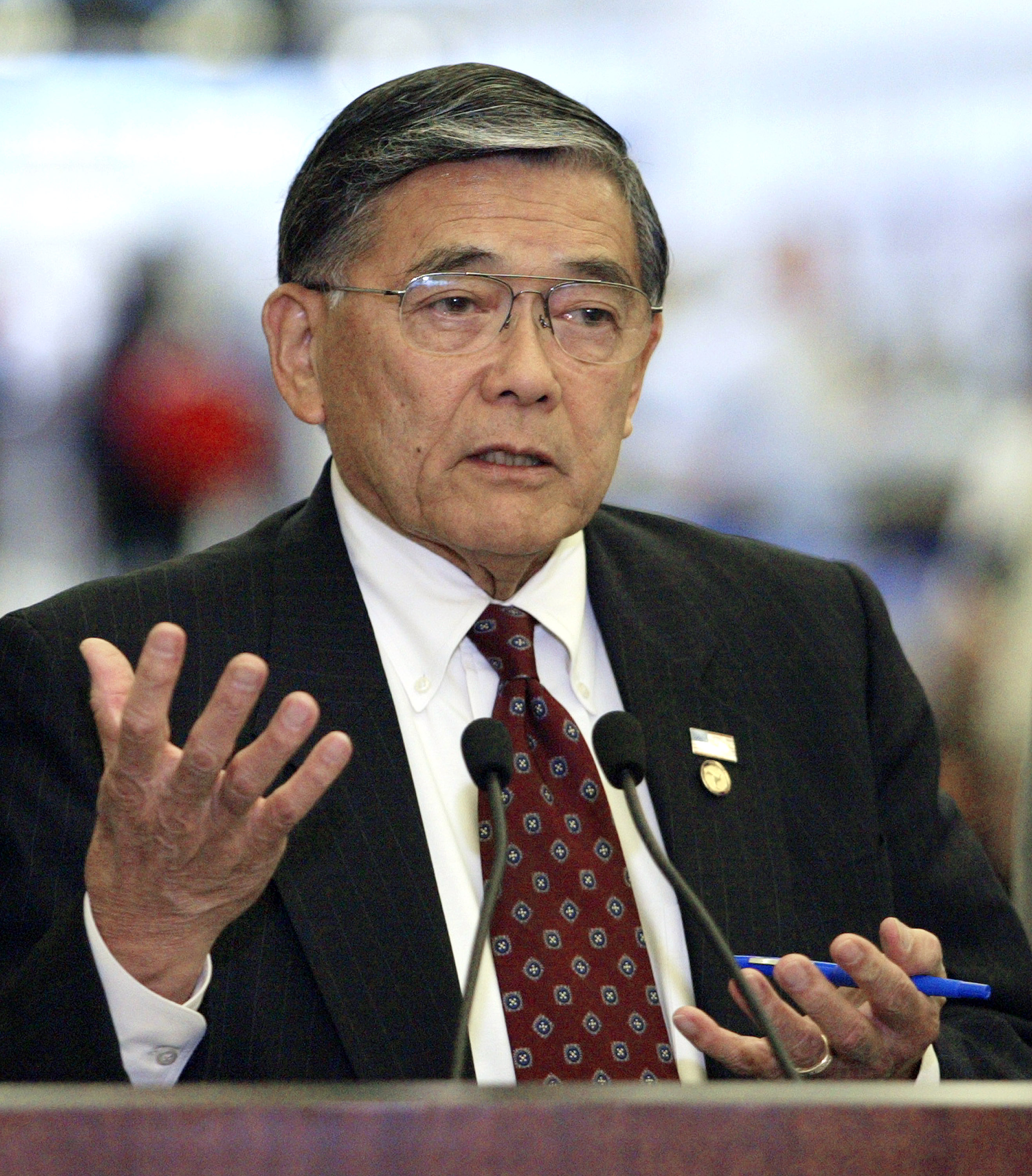Japanese-American community leaders are gearing up to commemorate 30 years this week since their activism prompted an official apology from Washington for their wartime incarceration.
On Saturday in Los Angeles’ Little Tokyo, the Japanese American National Museum and Go for Broke, an educational center that teaches about the Japanese Americans who served with the United States Army in World War II despite their families’ incarceration, will hold a number of talks and exhibits to remember the government’s apology for a presidential executive order that incarcerated 120,000 Americans of Japanese origin amid hysteria over the war.
The Civil Liberties Act of 1988, the result of tireless community activism in Los Angeles and across the country, offered a blueprint for other American communities seeking justice, says Mitchell Maki, the director of Go for Broke and co-author of the book Achieving the Impossible Dream: How Japanese Americans Obtained Redress. “There are specific examples in which the Civil Liberties Act from the Japanese-American redress movement served as an exemplar for other communities,” Maki says. These include Florida’s 1994 recognition and reparations over the 1923 Rosewood Massacre, in which white supremacists slaughtered an entire community of black Floridians; and Congress’ 1993 Apology Resolution for the overthrow of the Hawaiian Kingdom that decimated much of the indigenous civilization there.
Now, Japanese-American leaders are engaged in what they see as another civil rights siege: the Trump administration‘s hostility toward immigrants and communities of color, specifically its travel ban barring people from five Muslim-majority nations from entering the U.S. The ban, many say, bears resounding parallels to the unconstitutional incarceration of Japanese Americans in World War II.
The Japanese-American alliance with Middle Eastern and Muslim Americans has grown steadily since their vocal opposition to the Muslim hysteria in the aftermath of the 9/11 terrorist attacks. An exhibit at the Japanese American National Museum that runs through the end of the week, called “What We Carried,” features photographs of objects that Iraqi and Syrian refugees brought along when they fled their homes. At the start of the exhibit is a description tying the emotional impact of the refugees’ belongings to that of objects brought by Japanese-American community elders to internment camps across the Western U.S.
For Maki, the history of Japanese Americans’ fight for redress offers a blueprint for taking on the Trump administration. “The Japanese-American redress movement is a story of a small, disenfranchised, and oppressed community that found its voice and the courage to stand up and demand a rightful apology,” Maki says. “That’s a lesson to all Americans that we all have a rightful place at the table and to demand what is just. What is given to one American needs to be given to all Americans.”
Norman Mineta, a former Democratic representative from California who served in the cabinets of former Presidents Bill Clinton and George W. Bush, was incarcerated during the war as a child in Heart Valley, Wyoming. Mineta worked together with fellow legislators and congressional staff to start the commission that, together with the the Japanese American Citizens League and other community groups, resulted in the White House apology. The Commission on Wartime Relocation and Internment of Civilians gathered testimony from Japanese Americans across the country who, overcoming generational trauma and a culture of silence on the experience of internment, came forward to testify.

(Photo: Tim Boyle/Getty Images)
After their success in the battle for official recognition of Japanese-American internment, it seems there are new battles emerging in the present day, Mineta tells Pacific Standard.
“I think that the commission report in talking about the causes of the evacuation and internment still apply today, namely the historical racial discrimination, secondly hysteria, and thirdly the lack of or the failure of political leadership. I think those three elements do apply today,” he says. “The public really has to be vigilant in the protection of their constitutional rights. They don’t have to be vigilantes, but they do have to be very vigilant in the protection of their constitutional rights.”
In resisting Trump administration policies toward immigrants and others, Mineta underlined the importance of public education, in the commission, toward the end of demanding redress. “People don’t take up an issue unless they see a clear injustice and there are so many things that have occurred in our country—and it is a great country,” he says, explaining that its proven ability to right wrongs is a sign of strength.
Maki agreed that a clarity of purpose, establishing common cause and working in tandem with a broad umbrella of affected American communities is key to fighting the tides of what many call institutionalized xenophobia.
“One lesson was that it was incredibly important for the Japanese-American community to find its own voice and then to speak with one voice on this,” he says. “By the time the redress bill hit the floor of congress, Japanese Americans were pretty much in unison that this is what we wanted. There’s always some dissent. But this was the vehicle by which we pursued justice, rather than 10 voices in the community bickering.”
Also decisive was the ability of the Japanese-American movement to frame its fight within the broader context of a battle for the integrity of the U.S. Constitution and American civil liberties.
“This wasn’t an ethnic-specific bill; this was about our constitution and equal protection under law,” Maki says.
On occasion, news coverage presents controversial Trump administration policies as exclusive to specific communities. That, Maki says, is a mistake in a country where our rights are heavily interlinked.
“When I think of issues in our nation today, often they are portrayed as ethnic or immigration or special interest issues, which they are not. At their core they are about bringing together distinct cultures into one strong nation. We can’t lose sight of that.”





